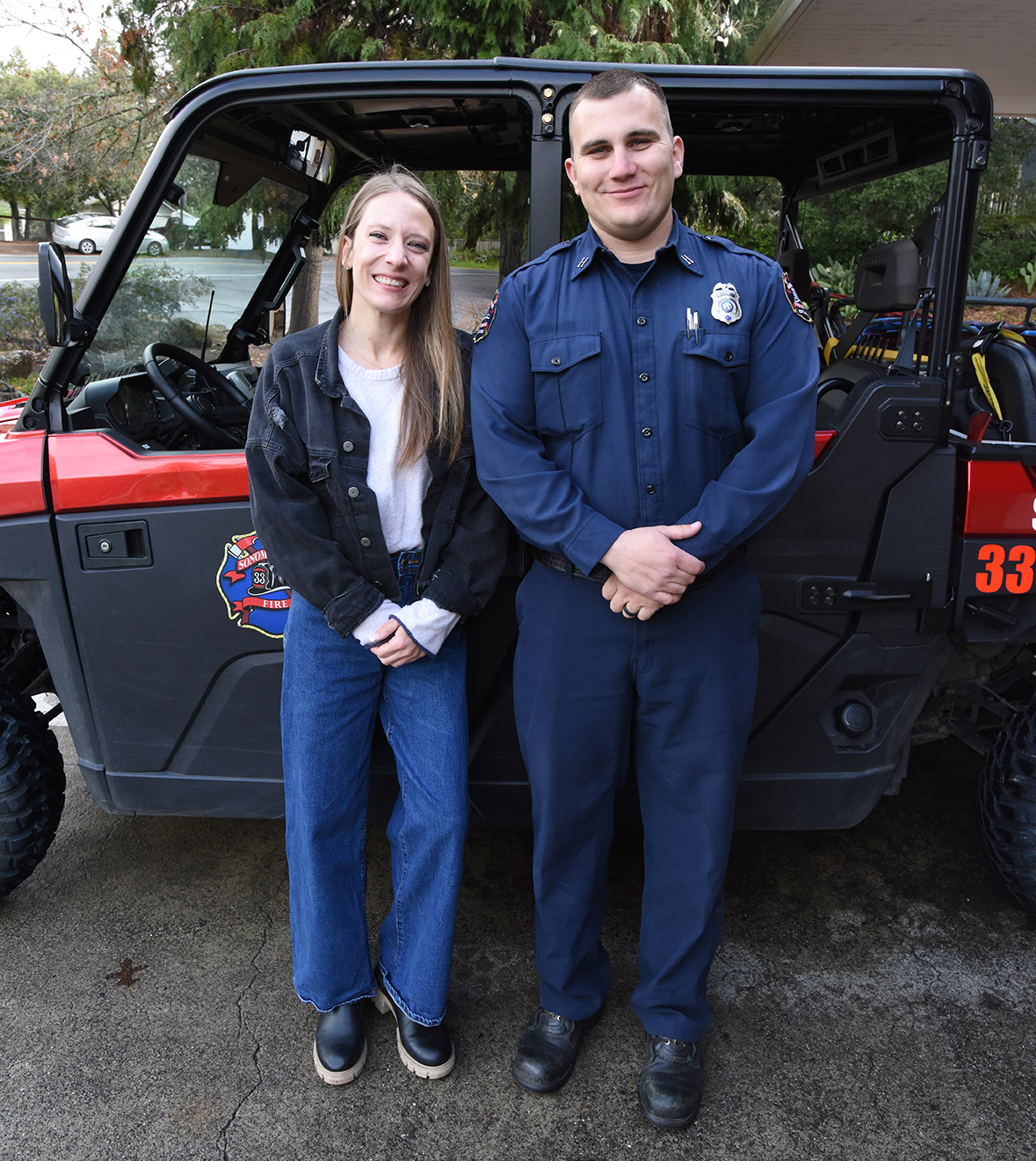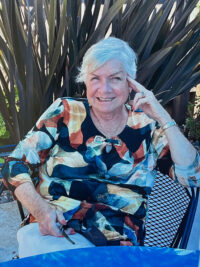By David Bolling
Sierra Nadeau should be dead.
OK, that might be a little extreme. But not by much.
She was taking a hike up the labyrinth of trails and fire roads that snake up the side of Sonoma Mountain above Glen Ellen. Sierra is a very fit 32, and a culinary professional who loves sustainably foraging for wild edibles. She had her beagle-sized rescue dog, Brewski, with her and at first it was pouring down rain and the trail was slick with mud.
She also had a couple of EpiPens in her backpack because Sierra suffers from idiopathic anaphylaxis, meaning she can experience severe anaphylactic shock with no identifiable trigger, like a bee sting or other tangible allergen.
In the last four years, she says, she has had four or five episodes of anaphylactic shock, and on two occasions one shot from an EpiPen was not enough to relieve the symptoms which can, in extreme cases result in a sudden drop in blood pressure, constricted airways, difficulty breathing, a swollen tongue, unconsciousness and death.
On this day, as she entered a copse of fir trees, her little cone of reality disintegrated.
“I started feeling burning hot,” she says, “feeling weird.”
She managed to call Marius Canard, a close friend familiar with the trails on Sonoma Mountain, told him where she was, then fell to her knees and vomited.
“I was able to text Marius, and then 911, but I couldn’t reach my EpiPens, I’m lying in vomit, focused on breathing, my phone rings and I can’t even answer it, I thought, oh shit, I’m about to die.”
Then miraculously, Marius arrived, after racing hard up the soggy trail. “He ran up that hill in seven minutes. He told me that my face was almost entirely blue. He probably saved my life.”
Marius injected Sierra with an EpiPen, called for a paramedic and tried to keep her engaged as she slipped in and out of consciousness.
Unknown to Sierra and Marius, a full-court rescue “surge” was underway in the corridors of Sonoma Valley Fire & Rescue, with two paramedics dispatched in a four-wheel “side-by-side” utility terrain vehicle (UTV).
Guided by the signal from Canard’s cell phone, the paramedics plotted a course bringing them close to Sierra on a trail above where she was lying on a bed of leaves under an open column of space among the trees.
But the racing paramedics came to a sudden halt when they encountered a fallen tree completely blocking the trail.
Instantly, Mason Lewis, a ten-year veteran paramedic, vaulted out of the UTV, snagged his mobile rescue pack and raced down to where Sierra and Canard were waiting. Lewis administered more epinephrine as Sierra wobbled on the edge of awareness. She says she thinks she heard him say, “She’s going fast.”
The Sonoma Valley rescue team had meanwhile determined that Sierra was too far from an accessible road for an ambulance to reach her in time, and without the UTV – which carries a full-sized rescue basket – the only way out was up.
Lewis had already made contact with the Sonoma County Sheriff’s rescue helicopter, but it wasn’t available, so the call was transferred to the California Highway Patrol which promptly sent the nearest “bird,” but it was a comparatively small helicopter, which meant there was no room for Sierra inside. It hovered above the open patch where Sierra lay, and lowered a long rope with a plastic vest commonly referred to as a “scream jacket.”
An appropriate name since Sierra says she is “terrified of heights.” She was nevertheless helmeted, buckled into the jacket, and pulled straight up to the helicopter, hovering 200 feet above the ground.
“All I could see was the propellers,” she says, and that’s all she did see for the next eight minutes on the flight to Memorial Hospital in Santa Rosa, which has a landing pad. “It felt like forever,” she said after recovering. “This CHP officer held me by the handles outside the plane the whole way.”
Sierra, Marius and Brewski went back to Fire and Rescue Station 5 in Glen Ellen a few days later to thank Mason Lewis, who said their appreciation was one of the nicest things that has happened to me. “It was really great to see her again. We don’t always hear how things turn out.”
Asked if he thought Sierra would have died, Lewis smiled and said, “Well, it sure looked that way. So, probably yes.”
Sierra is convinced that’s true, that without Canard and Lewis, she would have missed the only free-outside-the-helicopter ride she will (hopefully) ever have.






Be First to Comment